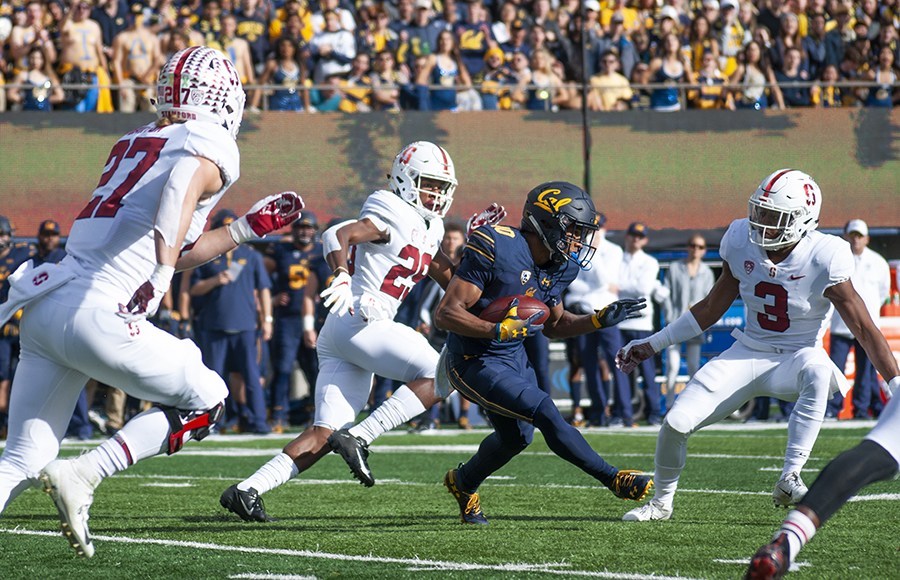With high school football delayed at least until winter, a question for fans is whether college football will take place in the fall. Major conferences have announced significant schedule changes and delays, and the Ivy League already canceled all fall sports for the 2020-21 school year. The Big Sky Conference, which includes Sacramento State, reportedly voted to cancel the football season on August 6. NCAA divisions 2 and 3 have also announced the cancellation of all fall sport playoffs.
Meantime, hundreds of athletes have tested positive for COVID-19. And athletes in several conferences are making demands on their schools to ensure safety.
It’s also unknown whether any schools will have in-person classes in the fall, and if colleges are going to maintain the fiction that their players are “student-athletes.” Lawyers are likely eager to ask a school president under oath how a school can be unsafe for classes but somehow safe for unpaid football players to play.
The Pacific-12 conference has announced it will only play conference games this year. Each team will play 10 games, five against its own division and five against the other division, skipping one school. Games would start on September 26. A conference championship game is still scheduled for December 18 or 19, but it will be held at a school site rather than at the Raiders’ new stadium in Las Vegas. A two-year deal for the game to be held there has been postponed by one year.
More important, many players in the conference have formed a “unity group,” making several demands of the schools. The players say they will sit out the season if their demands aren’t met. According to reports, 30 UCLA Bruins signed the letter. Eight players tested positive for the virus, according to reports on August 5, and they demanded back in June that a third-party health official observe all activities to make sure protocols are being followed.
The unity group’s demands start with health and safety protections: the option to sit out without risk of losing either a scholarship or a spot on the team’s roster for walk-ons; prohibition of contracts that waive liability regarding the virus; and creating health and safety standards enforced by a third party acceptable to players. Not only that, the players are demanding protections for other sports and a reduction in excessive pay, including for Commissioner Larry Scott and coaches. The players requested the use of some endowment funds to pay for all sports, demanded an end to racial injustice in college sports, in light of the George Floyd murder at the hands of a police officer in Minneapolis.
As you might imagine, less liberal college coaches are not happy about the unity group’s demands. The Dallas Morning News obtained a recording of an August 1 call between Washington State receiver Kassidy Woods and coach Nick Rolovich, where the coach told Woods (referring to the unity movement), “That’s going to be an issue if you align with them as far as future stuff.” Rolovich is a Bay Area product, out of Marin Catholic High School and then City College of San Francisco. Woods is opting out of the season because he is in a high-risk group for COVID-19.
Worse, a report in the Coloradan on August 4 said that Colorado State players had been told to hide COVID-19 symptoms and that the university was altering contact tracing reports. A player told the newspaper, “there is a cover-up going on at CSU, but they could only cover it up so long and now that we have so many cases across athletics, they can’t cover it up anymore. It’s not about the health and safety of the players, but about just trying to make money off them.”
The SEC has been the best conference in college football for more than a decade. It will also go with a conference games-only model, with games starting September 26.
The decisions by the PAC-12 and SEC had a major ripple effect. USC and Notre Dame have the longest intersectional rivalry in college football. The teams have met 91 times beginning in 1926, and happened every year since missing three years for World War II. They won’t play this year thanks to the Pac-12’s conference-only schedule.
Several SEC schools have annual rivalry games with schools from the ACC, including Clemson-South Carolina, Georgia-Georgia Tech, and Florida-Florida State. The ACC had just announced each school would have one non-conference game in the hopes that those games could be played, but the SEC announcement effectively killed all those rivalries for the time being.
All of this assumes the pandemic will subside enough to have a season. The NFL likely has the economic power to plow ahead. But it (openly, at least) pays its players. The liability issue for amateurs is a major roadblock in the college game. Even if colleges force their athletes to sign contracts waiving their rights, it’s not clear that would be enforceable if a player or players were to die or suffer severe disabilities due to contracting the virus on the football field.
Major League Baseball is a mess right now, despite daily tests and protocols that supposedly were going to prevent what’s happening. A college football season at the moment seems unlikely to go much better.
